Successful hybrid work models allow employees the flexibility to work in-office and remotely without compromising company culture or cybersecurity. The model relies on providing technology and tools that allow workers to seamlessly move from the office to anywhere else in the world without compromising their connection to the company network or creating a security gap that makes their interaction with the business a potential attack vectors for attackers. A hybrid work environment requires a combination of hardware, software, and policy that facilitates communication and collaboration between workers no matter where they choose to get work done.
By prioritizing a high-quality work experience from anywhere in the world, businesses can allow employees to message, call, and collaborate on the go. This means employees have a lot of flexibility when it comes to where they work, making a home office or hotel room a potential workspace. Once everyone in the company has the technology and support they need to work remotely, a business can be more resilient to major disruptions to business operations and better prepared to support a wide range of talent that may not be able to regularly make it to the office. Overall, a hybrid workspace offers businesses of all sizes benefits that help the company remain agile and productive in the face of challenges.
Why Move Towards Hybrid Work?

A hybrid work environment provides employees with more flexibility, better work life balance, and a work environment that generally leads to higher productivity. Research has shown that workers use work time at home productively and invest their new-found free time into social and personal endeavors. According to the 2022 Cisco Global Hybrid Work Study, 61.4% of employees indicated an increase in the quality of their work and 60.4% saw an increase in productivity after adopting a hybrid work schedule. 78.9% of employees felt the flexibility provided by a hybrid work environment allowed them to have a better work-life balance and save four to eight hours of time because of reduced work-place interactions and commute times.
Because employees are happier in positions that offer remote options, businesses can look to a hybrid work environment to improve talent retention and employee morale. 61.9% of polled employees in a remote work setting said they were less likely to look for a new job. This means it is likely that remote work options can make a business appealing to skilled workers and help keep well-trained individuals at a company long-term. Companies that embrace work from home schedules have also seen a boost in morale, and a majority of employees see improvements in their workplace culture after they begin working remote.

Maturing to a Hybrid Work Model

Moving to a hybrid work model takes time and coordinated effort across an entire company. While small businesses may be able to move into remote work quickly, larger companies can face challenges as they mature into remote work and require the help of an IT consultant. To prioritize cybersecurity and efficiency, it is generally best practice to move into remote work in stages. By staggering technology and policy roll out, employees have time to become proficient with their new tools and company culture can adjust to employees working from home. While a business always takes a unique path to hybrid work, general maturity stages for a hybrid work model can be understood as:
- Observer: Little remote work technology has been implemented, and the company is researching the benefits and implementation of a hybrid workspace.
- Adopter: Hybrid work models have been implemented and steps to invest further have been taken. Generally, companies at this stage have data collected to begin making informed decisions on further investments.
- Champion: Success has been found with remote work in sections of the business, but more guidance and technology is necessary for further development.
- Innovator: Company-wide hybrid work practices have been implemented and company policies work in conjunction with technology to provide a rewarding remote work experience for employees.
Maturing into a strong remote work model requires data collection, professional guidance, trial, and error. Company leadership can use a maturity model to begin thinking about their next steps for moving to remote work. For example, a company in the early stages of maturity can focus on technology procurement and deployment to better ensure employees have the tools they need to effectively work remotely. It is recommended to work with an IT consultant to develop a strong plan for the business’ growth, so leadership and employees can support the shift to a remote work environment.
Securing a Hybrid Work Environment

Along with the rise of working from home, cybersecurity solutions have evolved to protect companies that have an ever-increasing number of remote endpoints. To ensure employees can access the applications and data needed to do their work, businesses must provide secure remote access and authentication processes. This can be accomplished with VPN solutions and multifactor authentication (MFA) services, such as DUO or Microsoft Authenticator. Endpoint protection, network detection and response, and other advanced security tools can be necessary to secure even a medium-sized business’ hybrid workers. It’s no wonder a third of employees believe their company doesn’t have the right security solutions for remote work.
To help bridge this security gap, SMBs have looked to software-as-a-service (SaaS) solutions from managed service providers (MSPs). For remote work, the size of the business and the maturity of its hybrid work environment heavily determine the security solutions it needs. For example, a small business with a handful of employees may only need a VPN, MFA, and a robust endpoint protection service. Medium and enterprise level businesses will need a combination of cybersecurity services that can integrate seamlessly with each other and provide automatic threat remediation and data collection to help the company’s IT team determine security risks and adjust policies and security tools to address ever-evolving threats.

How an IT Consultant Helps

To implement and mature a hybrid work environment, businesses need to inform leadership and employees, develop a maturing strategy, deploy needed technology, and secure every endpoint that accesses the network. When done alone, this can be a challenge for even the most experienced IT teams. By working with an IT consultant, businesses gain access to an experienced IT professional that can provide guidance on how to set up and secure a hybrid work force. A consultant can support both leadership and the IT department to develop strong cybersecurity policies and technology deployment that allows the business to smoothly transition into remote work while putting company culture and cybersecurity first.
For small businesses, an IT consultant can perform many functions provided by a full IT team. They can work with the business to monitor the network and implement security solutions and new technology as the company grows to accommodate more endpoints. Medium-sized businesses can gain a reliable MSP that offers informed recommendations for new security solutions and data protection. This way, network activity can be monitored around the clock, and the business always has just-in-time solutions for rising problems. For enterprise-level companies, an IT consultant can help plan shifts in technology use and provide recurring network assessments to identify and remediate outdated devices and code versions.
Every business can benefit from working with an IT consultant when they plan to transition to a hybrid work environment. A consultant can provide personalized insights that help create a unique path for individual businesses to offer the flexibility of hybrid work without sacrificing cybersecurity.

Summary
Transitioning to a hybrid work environment provides employees and leadership with a flexibility that has been associated with improved morale and higher retention rates. With remote work as an option, businesses can attract a wider range of talent that helps them provide clients with the best possible product or service. Implementing the technology and security solutions needed for hybrid work can be difficult for businesses of any size, but an IT consultant can help. By working with a consultant, businesses can access valuable resources and services needed to roll out new devices and applications smoothly and maintain a strong cybersecurity posture as employees work remotely.
The team at Robinett Consulting understand the value of hybrid work, and our team members enjoy both a hybrid work environment and fully remote options. We understand what it takes to transition to a hybrid model, so we bring our knowledge and experience to the partners we work with. Whether your business is local to Henry County, Georgia, or has offices all across the United States, Robinett Consulting has the IT experience necessary to secure and facilitate your businesses transition to a hybrid work environment!




